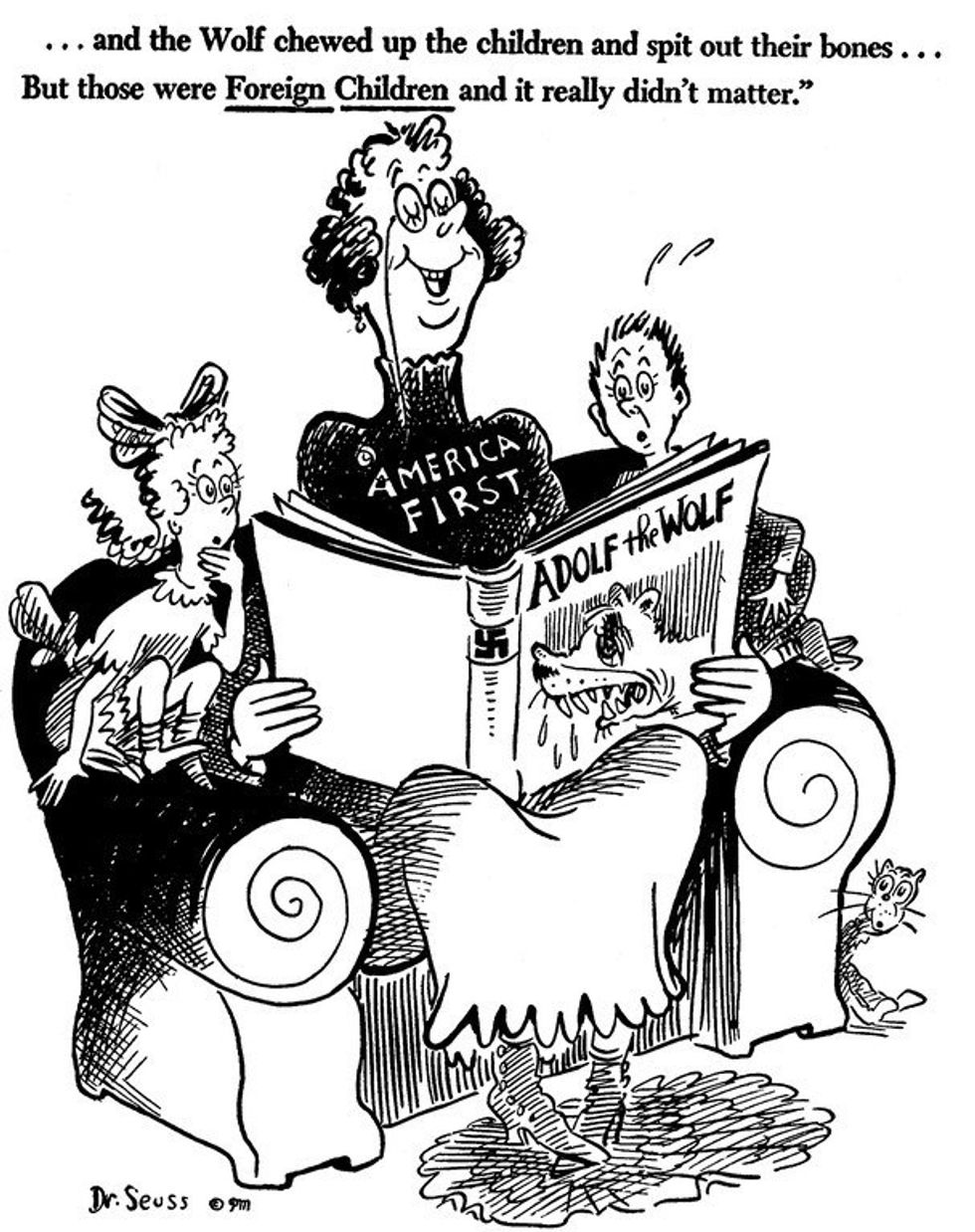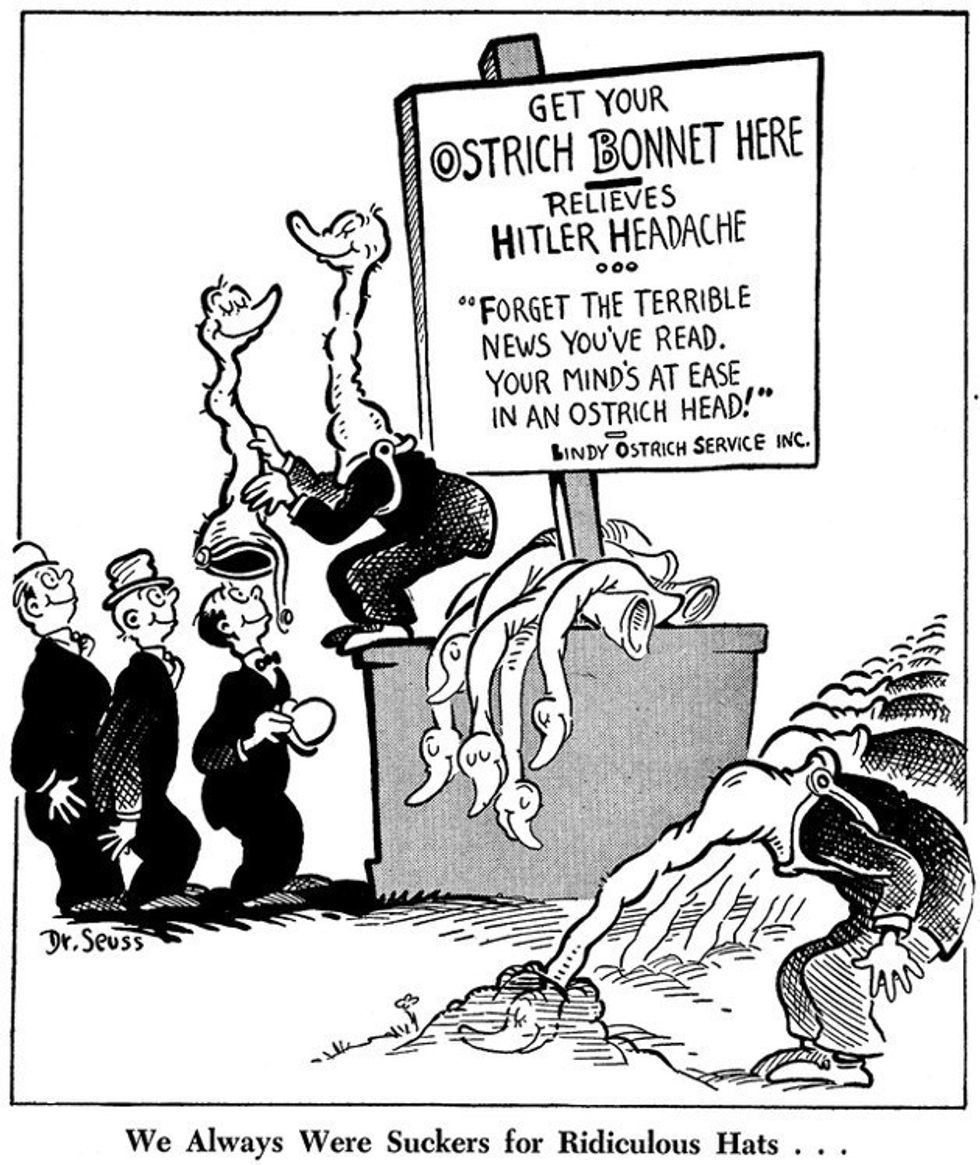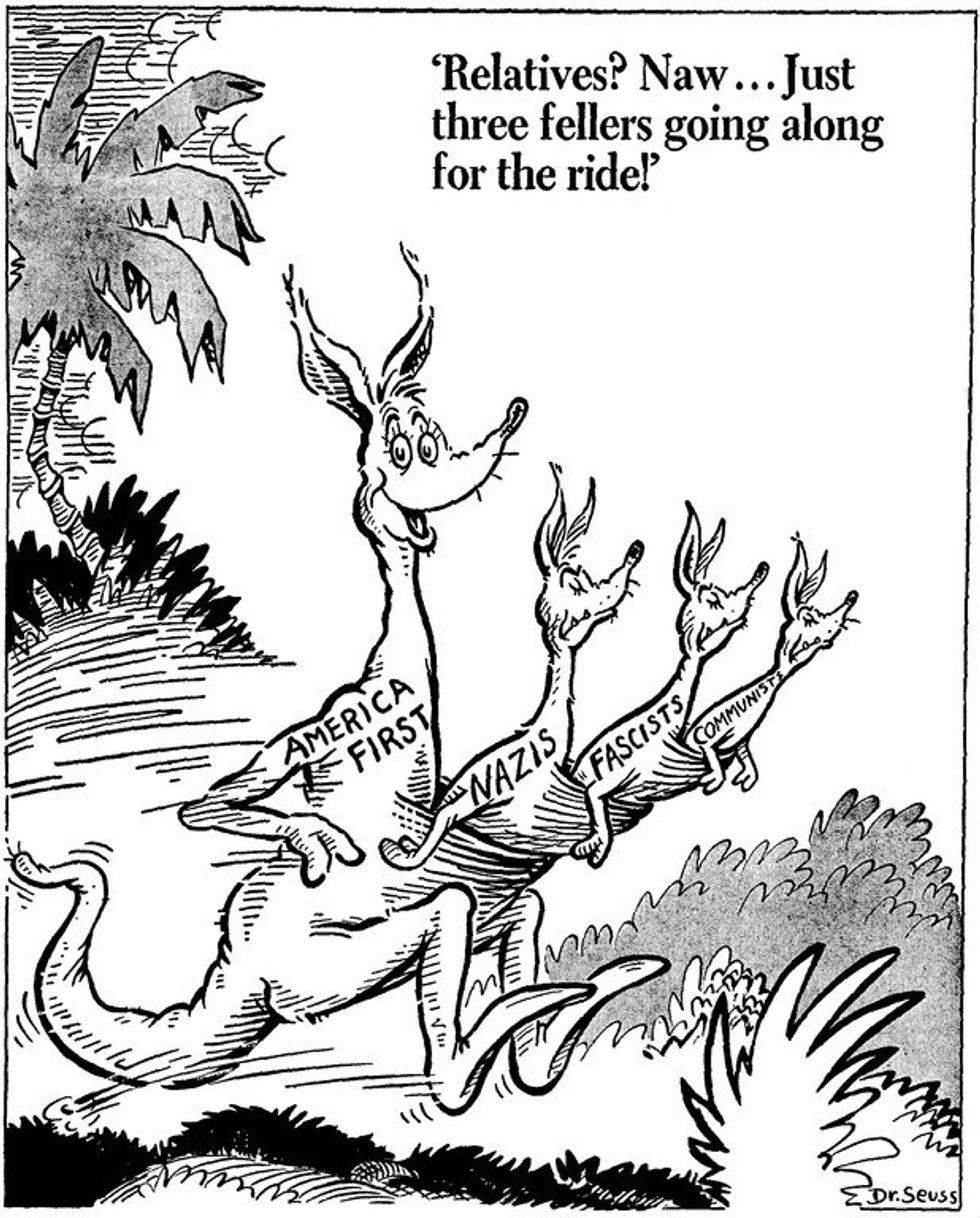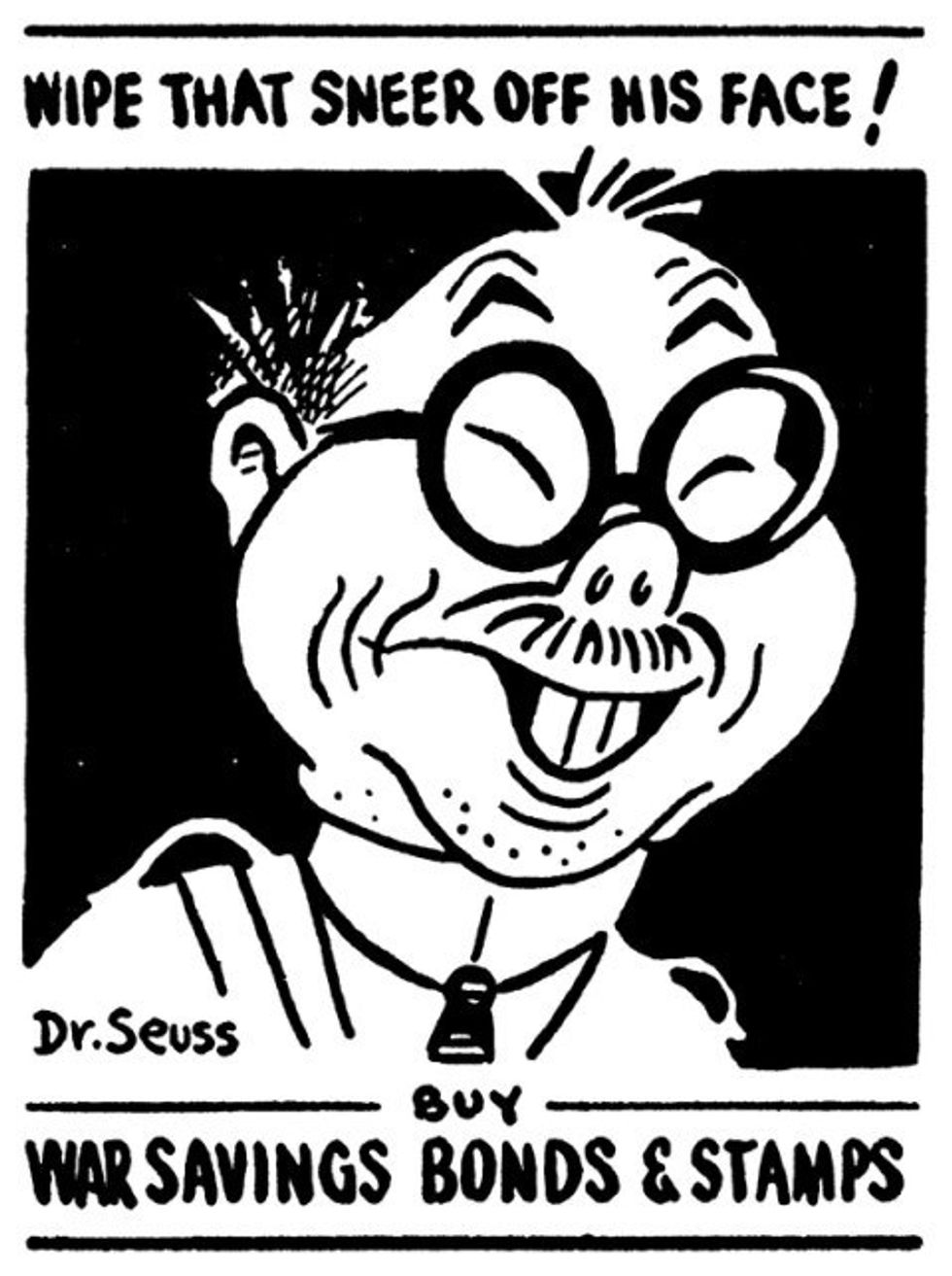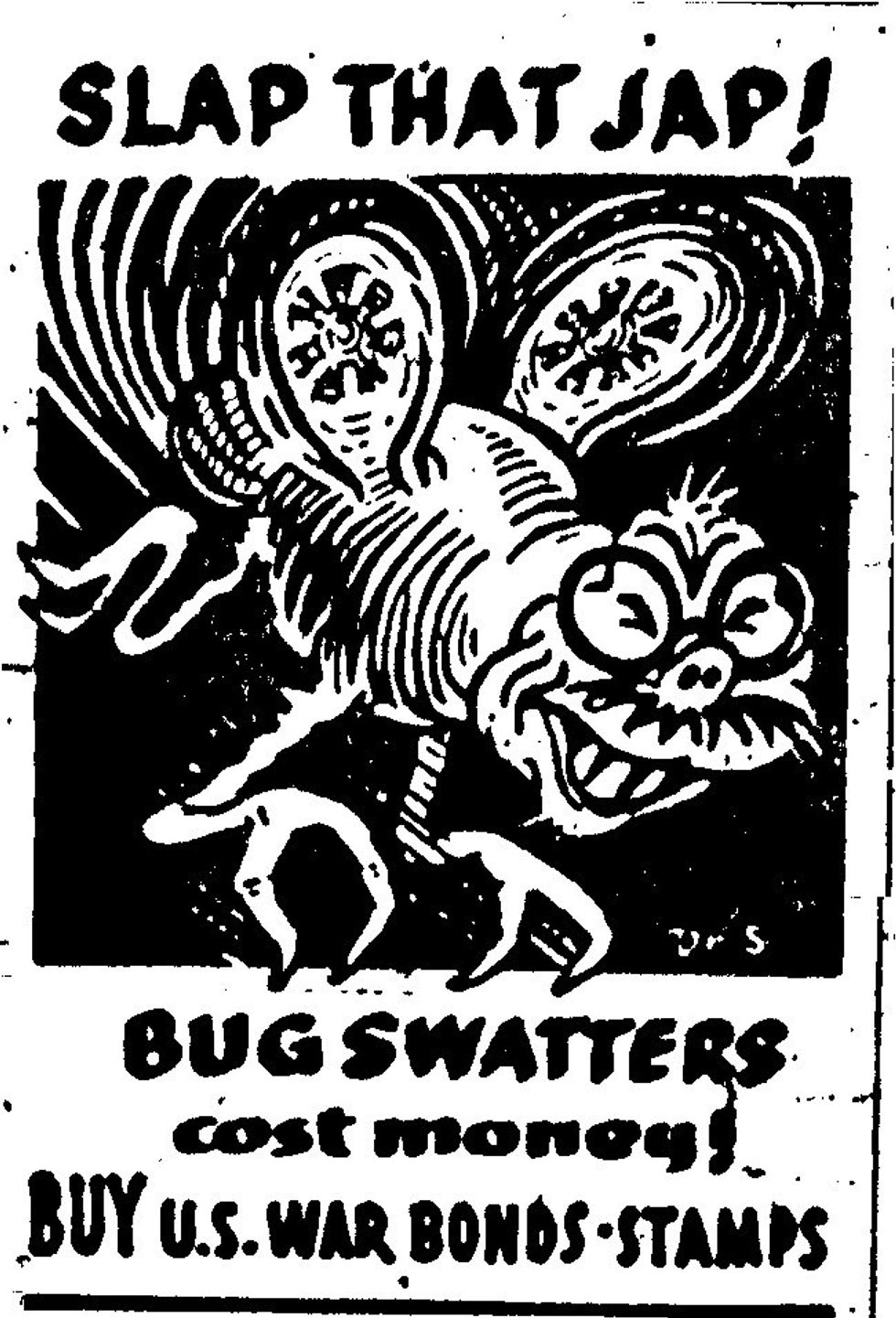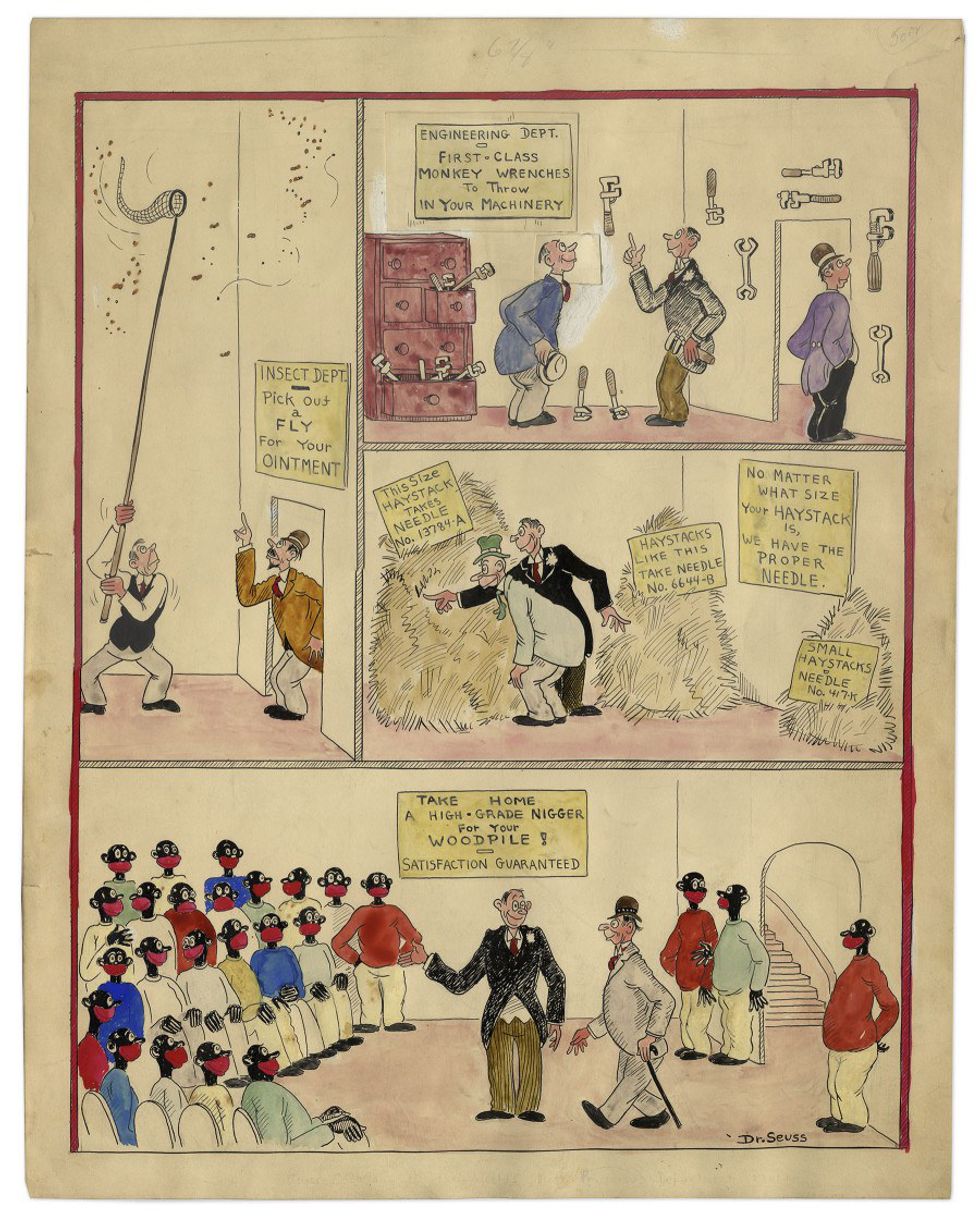Last Thursday marked the 87th birthday of the prolific children's author Dr. Seuss, born Dr. Theodor Seuss Geisal March 2nd 1904. This man hardly needs an introduction. The creator of so many brilliant stories that saw many of us through childhood, Dr. Seuss has long been held as a hero of American Children's Literature. Upon the anniversary of his birth, my Facebook feed was flooding with articles about Seuss' long and illustrious legacy, especially his lesser known political cartoons. Many publications turned their attention to Seuss' WWII anti-isolationism and anti-fascism cartoons, noting their particular relevance in our current political climate.
Here's one cartoon critiquing the blatant naiveté of the early WWII America First Isolationist policy and how political inaction in foreign instances of oppression is nearly as morally condemnable as the acts of oppression in themselves. This was a sentiment expressed often in Seuss' political cartoons, and one that modern readers find to be particularly salient in regards to Trump's executive orders regarding immigration and Syrian refugees.
And yet another critique on turning a blind eye to international injustice.
And while there's no doubt that these cartoons provide an intriguing insight in to our current political environment, I also can't help but notice these writer's omission of Seuss' more problematic early works, such as his alarmingly racist depictions of the Japanese after Pearl Harbor:
And while most articles, like this one from the Atlantic, mention the more unsavory side of Seuss, I think it's worth mentioning that they don't actually provide the examples of his offensive cartoons. Most articles especially neglect to mention Seuss' earlier advertisements that include down right abhorrent depictions of Africans and African Americans.
This 1929 piece titled "Cross-Section of The World’s Most Prosperous Department Store” was featured on Huffington Post and actually sold at online auction for $20,000 at Nate D. Sanders Fine Autographs and Memorabili. Unfortunately this is not the only morally compromising Seuss Cartoon, as his early work is well documented.
Trust me when I say that I am not showing you these images to destroy the last remnants of your childhood innocence (though let's be honest that's gotta go sometime). These racist cartoons in no way invalidate the cultural importance of Seuss' later works including but not limiting to : The Lorax, The Better Butter Wars, Oh The Places You'll Go, and Horton Hears a Who (Which Seuss wrote after a trip to Japan and dedicated to his Japanese friend Mitsugi Nakamura), all of which stand as stunning examples of the Seussian Philosophy we all know and love: that which laughs at the absurdity of senseless hatred and violence and celebrates the ultimate strength and endurance of tenderness, understanding, and friendship. And it is baffling to say the least, that a man who went on to be an active opponent of racial oppression, such as Jim Crow Laws, and anti-semitism could have possibly gotten his start illustrating these down right bigoted cartoons.
However I cannot stress enough the importance of facing these contradictions in our historical memory, as uncomfortable as they may be. Though these unsavory truths may feel needless, they remind us not to blindly idolize the past. Because by romanticizing history (and in turn historical figures) we rob ourselves of the opportunity to learn from it. And on a slightly different, though still related, point: it's equally important that we do not throw away the lessons of Dr. Seuss, and others like him, altogether. Despite his complicated history, he provided an extreme amount of insight in to the human condition and was able to remarkably distill these points down to their most digestible essence. Thanks to him, we learned the consequences of mindless hate, short term thinking, and just simple close-mindedness. These are not lessons to forget. And along with them we should remember that he was a person, capable not only of making ugly egregious mistakes, but also of great change.




